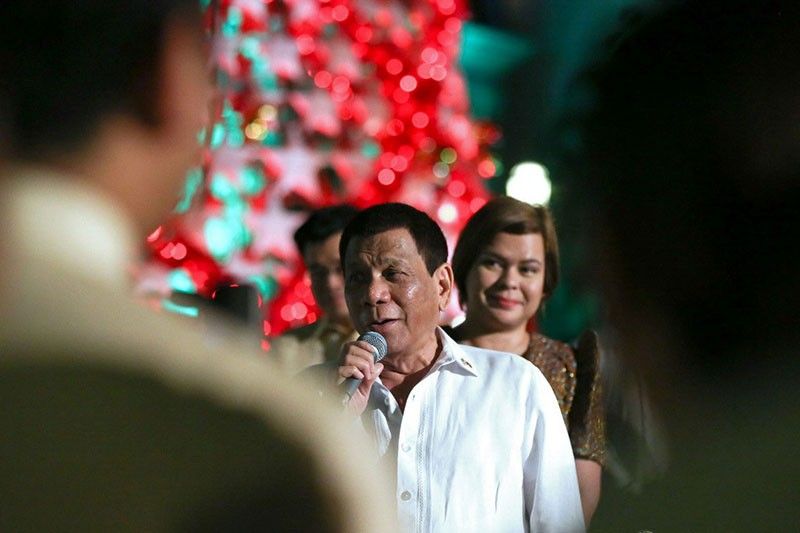
The assessment of President Rodrigo Duterte’s alleged crimes against humanity will be continued by the International Criminal Court despite the Philippines’ withdrawal of its ratification from the Rome Statute.
The ICC confirmed this in an annual report released this week months after a preliminary examination into the situation was opened by ICC prosecutor Fatou Bensouda.
According to the ICC, the Office of the Prosecutor has been conducting a thorough factual and legal assessment of the information available so a reasonable basis to believe that the alleged crimes fall within the jurisdiction of the court can be reached.
“The office has continued to gather, receive and review information available from [a] wide range of sources on the crimes allegedly committed in the context of the ‘war on drugs’ in the Philippines,” it said.
Moreover, the ICC said that any alleged crimes occurring in the future in the context of the same situation could be added in the analysis of the office.
“The office has further closely followed relevant developments in the Philippines and will continue to do so,” it said.
The ICC has received a total of 52 communications on the situation in the Philippines, including those filed by lawyer Jude Sabio backed by a supplemental communication by Sen. Antonio Trillanes IV and Rep. Gary Alejano (Magdalo party-list) in 2017 and the families of alleged victims of extrajudicial killings last August.
These communications alleged that Duterte and other senior government officials promoted and encouraged the killings of suspected drug users and dealers, as reported by Philstar.
At least 22,000 deaths under inquiry have been counted by the Philippine National Police since Duterte launched the war on drugs in 2016. Official government data showed that more than 4,900 “drug personalities” have been killed in anti-narcotics operations.
ICC maintains jurisdiction
The Hague-based court insisted in the same annual report that “it retains jurisdiction with respect to alleged crimes that have occurred in the Philippines during the period when it was a state party to the statute.”
The country’s letter of withdrawal from the Rome Statute was formally sent by the administration last March, citing “outrageous” attacks on Duterte and the supposedly illegal attempt by ICC prosecutor Fatou Bensouda to place him under the Hague-based court’s jurisdiction as reasons for withdrawal.
However, the withdrawal will only take effect a year after the date of the receipt of the notification so the Philippine currently remains a party to the Rome Statute.
In August, oral arguments on the consolidated petitions challenging the country’s exit from the international tribunal were held by the Supreme Court.
Malacañang responds to ICC
Malacañang on Thursday, December 6 said the decision of the ICC to continue its assessment of the government’s drug war is an “affront” to the Philippine judicial system and an “insult” to the country’s sovereignty
Presidential Spokesperson Salvador Panelo said in a statement, “The International Criminal Court (ICC) has once again exhibited its impartiality when it publicly pronounced that it will continue to assess the alleged crimes against humanity committed in the country. We are not surprised.”
Panelo alleged that the ICC and even some United Nations officials “have been issuing public statements and comments which tend to embarrass our country and produce an impression to the world that our government is already guilty of the crimes being accused of.”
He said the ICC was “free to proceed with its undertakings” but reiterated that the Philippines never became a State Party to the Rome Statute, which created the ICC.
“Thus, we will treat this tribunal as nonexistent and its actions a futile exercise,” he said.
He also said Duterte’s position on the Rome Statute is clear.
“It, being a law which is penal in nature, never took effect insofar as the Philippines is concerned due to its non-publication,” he said.
“This omission violates not only Article 2 of the Civil Code, but more notably, Article III, Sections 1 and 7 of the 1987 Constitution which respectively guarantee the rights of the people to due process and to be informed on matters of national concern. Treaties, as we all know, cannot supplant our Constitution,” he added.
Panelo noted that the statement Duterte made March of this year “was only a gesture of courtesy that the Philippines will no longer participate in the affairs of the ICC in whatever form.”
“Aside from the fact that all these crimes are already covered under our domestic penal laws, it cannot be denied that the Philippines has a robust judicial system which soundly operates,” he added.







